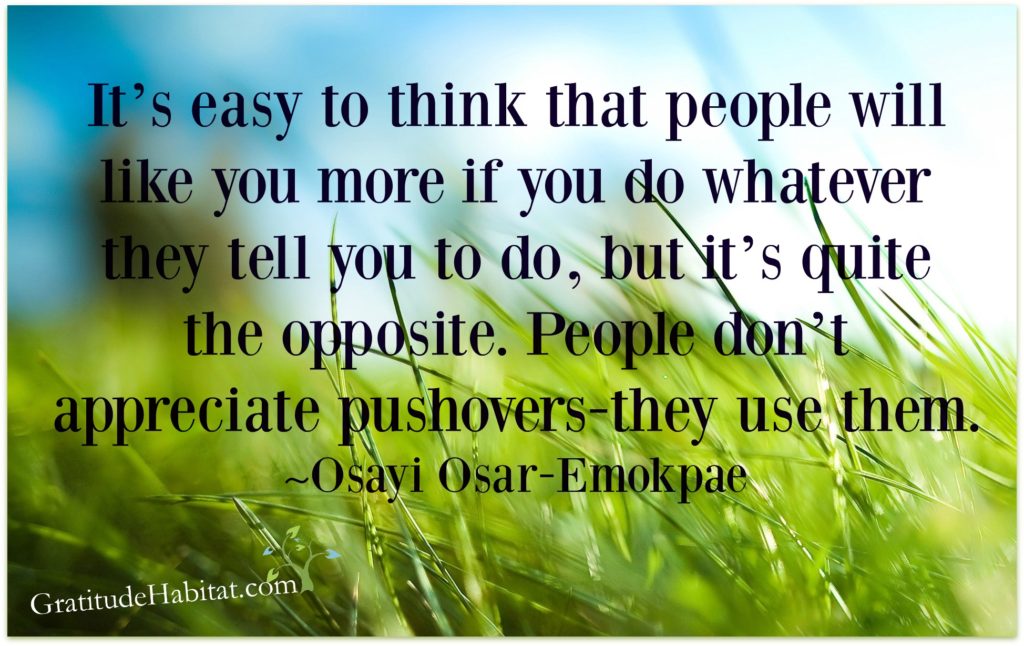Living In Gratitude: Stop Autopilot Apologies
You teach people how to treat you by what you allow, what you stop and what you reinforce. ~Tony Gaskins
We all know people who apologize for everything, even if they’ve done nothing wrong. Maybe we’re actually one of those people.
There are times when an apology is warranted, but when we say we’re sorry for anything that makes us remotely ill at ease, this can quickly become a harmful habit, lowering our self-esteem, justifying other people’s poor behavior or actions, and turning us into a pushover.
Have you ever apologized when someone bumped into you in a crowded restaurant or store? Or when a peer critiqued your work? How about when someone did a chore or task that you were supposed to do but didn’t? Or maybe when you wanted someone to explain something in more detail?
This automatic apologetic reaction many of us have is used to diffuse confrontation, placate others and avoid making things awkward. That unwarranted apology automatically lets others know we believe we are at fault, even if we’re not.
And the more we make this autopilot apologizing a routine, the more we’ll use it in situations that DO matter. They also communicate that we’d rather be agreeable than honest. Over time, people will begin to see us as pushovers, someone who will take the blame, be the fall guy or girl and can (and will) be taken advantage of.
So, how do we stop this pushover behavior?
Have An Apology Recap
When we find ourselves issuing an apology, we should ask ourselves two key questions.
- “Did I actually do something wrong?”
- And if not, “Did I want to communicate that I think I did something wrong?”



